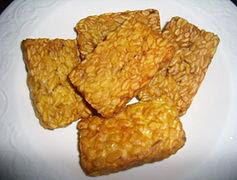English PronunciationPronunciation can be a tricky matter when it comes to the English language. Unlike with languages like Hindi and Tamil, letters in English take on multiple phonetic forms (think of the a in can and the a in war); thus, the concept of pronouncing a word the way it is spelled does not apply. This is partly the result of derivation; English is a derivative language in that many of its words and phrases have been borrowed from other languages (cafe, boutique, cocoa).
The unpredictability that results makes pronunciation in English difficult to master, and a written course is possibly the least helpful way to go about it. It is through continued contact with English speakers and practice that one’s pronunciation improves. Watching English-language films, TV shows, and news channels is also very useful. Both methods, however, require conscious effort. One must pay close attention while conversing with someone who is fluent, and while watching English-language film or TV productions, and, through practice, make correct-sounding speech a matter of habit.
There are, however, some guidelines that we can provide on pronunciation that should help in giving you an idea of the contours of spoken English:
Regarding ConsonantsBUsually pronounced like the ‘b’ in ‘big’. However, in words ending with ‘-mb’, such as comb, plumb, numb, bomb, etc, the ‘b’ is silent.
CUsually pronounced like ‘k’, as in ‘cat’. However, ‘c’ takes on the sound of ‘s’ when it precedes ‘e’, ‘i’ or ‘y’, as in ceiling, cistern, cynic, etc.
-dge
Usually pronounced like ‘j’, as in ‘bridge’.
GUsually pronounced as in ‘go’. However, before ‘e’, ‘i’ or ‘y’, ‘g’ is often pronounced like ‘j’, as in germ, ginger, gyrate, etc.
-gh
In some words, ‘-gh’ is pronounced like ‘f’, as in laugh. However, in some words it is silent, as in high.
HFor example, ‘head’. However, in a few words, the ‘h’ is silent, as in hour, honour, etc.
KGenerally pronounced like the ‘c’ in ‘cat’. However, when followed by ‘n’, it is usually silent, as in knife, knave, knight, etc.
LGenerally pronounced as in ‘leaf’. However, in a few words, the ‘l’ is silent, especially when followed by ‘k’ and ‘f’, as in talk, walk, half, calf, etc.
SGenerally pronounced as in ‘sun’. However, in some words ‘s’ is pronounced like ‘z’, as in nose, president, etc. In a few words, such as television and azure, ‘s’ takes on a sound generally represented phonetically as ‘zh’.
Th
Generally aspirated, ie, let out with a puff of air, as in think, third, etc. However, in some words, such as this, ‘th’ is not aspirated.
XUsually pronounced like in box (the sound is –ks). However, when it is the first letter of a word, x is pronounced like ‘z’.
YGenerally pronounced as in yesterday. In some words it takes on the sound ‘ee’, as in city. In yet other words, it takes on the sound ‘ai’, as in fly.
Regarding VowelsABefore two consonants, ‘a’ is pronounced as in sand. This also applies when appears before a single consonant at the end of a word, as in fan.
Before a single consonant followed by a vowel, ‘a’ is usually pronounced as in ate (the sound is ey).
Before ‘l’ and after ‘q’ and ‘w’, ‘a’ is usually pronounced as in call (the sound is aw). Other examples are squash and wall.
EBefore two consonants and before a single consonant at the end of a word, ‘e’ is usually pronounced as in desk or ten. This also applies when ‘e’ appears before a single consonant followed by a vowel (ever), although sometimes ‘e’ is pronounced ‘ee’ in such cases, as in even.
At the end of a word, ‘e’ is usually silent, as in ate, fate, etc; however, at the end of very short words, ‘e’ usually takes on the sound ‘ee’, as in be.
I Before two consonants and before a single consonant at the end of a word, ‘i’ is usually pronounced as in fit or fill. However, in some cases, before two consonants, ‘i’ takes on the ‘ai’ sound (rhymes with eye). For example, wild.
Before a single consonant followed by a vowel, ‘i’ generally takes on the ‘ai’ sound, as in eye and tire.
OBefore two consonants in some words and before a single consonant at the end of a word, ‘o’ takes on the sound ‘aw’, as in rock and not.
In other words, it is pronounced ‘oh’ when it appears before two consonants, as in bolt.
The same applies when it precedes a single consonant followed by a vowel.
UBefore two consonants and before a consonant at the end of a word, ‘u’ usually takes on either the short ‘oo’ sound, as in pull and put, or the blunt ‘uh’, as in duck and jut.
Before a single consonant followed by a vowel, ‘u’ takes on the long ‘oo’ sound, as in June.















